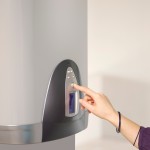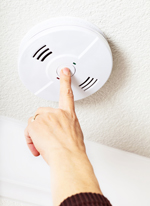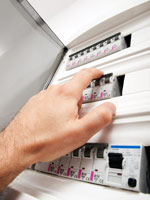Gone are the days when becoming a landlord meant nothing more than buying a rent book and drawing up an Assured Shorthold Tenancy Agreement. Today, rules and regulations dominate the lettings industry, increasing the time you need to spend managing a property – and the costs involved.
 Health and Safety is clearly a vital issue. Breaching regulations can carry a fine of up to £5000 or even a prison sentence, while also making your insurance void. But what basic facts should you know?
Health and Safety is clearly a vital issue. Breaching regulations can carry a fine of up to £5000 or even a prison sentence, while also making your insurance void. But what basic facts should you know?
First, make sure your property is habitable. Sounds obvious but you must provide adequate heating and ventilation, lighting, sanitation and insulation. And it makes sense to ensure your tenant knows how to keep the property in good condition – what to do if there is problem with the boiler, how to switch off the water, how to ventilate the property to avoid condensation. Make sure the tenant has instruction manuals for appliances in the property too.
FIRE SAFETY
Furniture and Furnishing Fire Safety Regulations (FFL).
All upholstered furnishings (beds, sofa-beds, futons, children’s furniture, garden furniture, cushions, seat pads, pillows etc) must be fire resistant and have permanent labels attached. Most modern furniture is already labelled but if the label comes loose you must reattach it. The inventory should list each item.
Fire Extinguishers
Fire extinguishers and blankets are not compulsory (HMOs have special regulations though) but they are a sensible precaution. They’ll need servicing annually and you should keep a record of this and give it to tenants.
Smoke Detectors
Smoke alarms should be mains operated and have a battery backup. There are requirements as to which type and where they are located. The landlord should check they are operational before a tenant moves in, after that it becomes the tenant’s responsibility.
GAS SAFETY
Annual Gas Inspections
Landlords must have an annual gas inspection on all internal gas installations carried out by a registered Gas Safe engineer who will then issue a Gas Safe certificate. You must give a copy of this to your tenant. More information on Gas Safety.
Carbon Monoxide Detectors
Carbon monoxide detectors are not compulsory but again it is a good idea to have them.
ELECTRICAL SAFETY
Periodic Electrical Testing
A new build property should have a ‘Domestic Electrical Installation Periodic Report’ stating that the electrical system is safe to use. The Electric Safety Council recommends a periodic electrical test be carried out every five years by a qualified electrician. You should leave a copy in the property.
Portable Appliance Testing (PAT)
PAT checks are not compulsory but the Electrical Equipment (Safety) Regulations 1994 and the Plugs and Sockets (Safety) Regulations 1994, which both come under the Consumer Protection Act 1987, state that there is an obligation to ensure all electrical equipment is safe. Regular testing is the easiest way to corroborate this. A copy of the PAT report should be left in the property.
ENERGY PERFORMANCE CERTIFICATES
You’ll need to obtain an Energy Performance Certificate (EPC) for the property stating which band the property falls into, typical energy use and estimated costs. The certificate is valid for 10 years. You should give a copy to the new tenants.
ENVIRONMENTAL ISSUES
Damp and Mould
This is usually caused by condensation and lack of ventilation and can be made worse by tenants. To avoid this make sure the property has adequate heating and ventilation and provide the tenant with instructions on how to minimise condensation.
Pets
The easiest way to avoid problems caused by fleas and allergy-causing cat or dog hairs is to agree at the beginning of the tenancy that the tenant should pay for a professional and thorough clean at the end of their tenancy.
Infestations
If the property becomes infested with either insects or vermin, arrange for a specialist to deal with the problem quickly.
These simple guidelines should give you a basic grounding in the most important Health and Safety issues concerning the letting of your property. If your property is professionally managed, this will all be taken care of but it’s a good idea to know the facts so you can be confident everything is being handled efficiently.
International offices

















